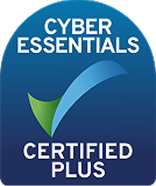Quick Links
- 1. What is ISO 27001 Certification?
- 2. ISO 27001 Compliance vs. Certification
- 3. What’s New in ISO 27001:2022 as of October 2025?
- 4. Who Needs ISO 27001 Certification?
- 5. Key Benefits of ISO 27001 Certification
- 6. How to Become ISO 27001 Certified
- 7. ISO 27001 Certification Process UK (Step-by-Step)
- 8. How Long Does It Take to Get ISO 27001 Certified?
- 9. How Much Does ISO 27001 Certification Cost?
- 10. Common ISO 27001 Challenges and How to Overcome Them
- 11. Tools to Simplify ISO 27001 Certification
- 12. Case Example: Everton Football Club
- FAQs
Beginners Guide to ISO 27001
If you're looking to understand ISO 27001 clearly, right from the basics, this guide is here to help.
Essentially, ISO 27001 is the main international standard for Information Security Management Systems (ISMS). It’s a framework from the International Organization for Standardization (ISO) that gives your business a clear way to handle data security and build customer trust.
It doesn’t matter how big your company is or what industry you’re in, ISO 27001 helps you set up a strong system to manage and look after your information. With cyber threats evolving and rules around data getting stricter, this standard offers a flexible and reliable method to stay secure and meet legal responsibilities.
In this guide, we’ll break down what ISO 27001 is, why it matters, and how to get certified, all in an easy-to-understand way.
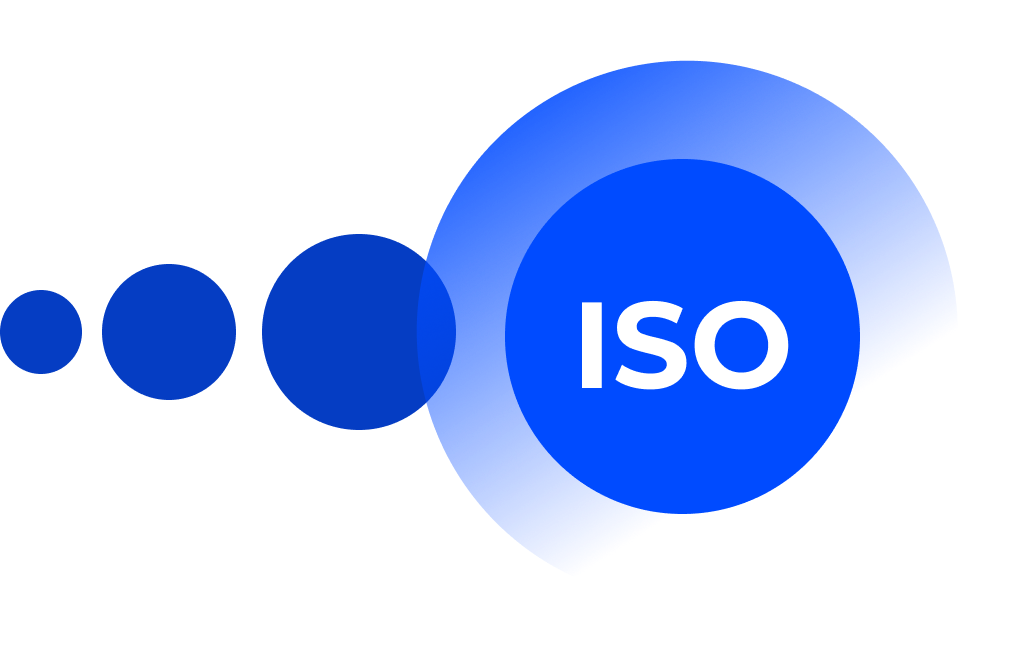
1. What is ISO 27001 Certification?
Holding an ISO 27001 certification is official proof that your organisation has the right systems in place to keep sensitive information safe. It proves that you’ve built a compliant Information Security Management System (ISMS) to mitigate risk, strengthen security, and meet international standards.
To achieve certification, an accredited body, such as the British Standards Institution, will inspect your policies, controls, and processes to make sure they meet the ISO 27001 requirements.
2. ISO 27001 Compliance vs. Certification
Organizations that are new to information security management systems often ask about the difference between ISO 27001 compliance and ISO 27001 certification.
In simple terms, compliance means your organization is following the ISO 27001 standard, or at least parts of it. But this is usually something you check yourself; there’s no outside review.
Certification, on the other hand, means that an independent body has looked over and confirmed it meets the full ISO 27001 standard. This extra level of trust is often needed, especially in industries with strict rules or higher risks.
3. What’s New in ISO 27001:2022 as of October 2025?
In October 2022 the ISO/IEC 27001 standard was refreshed to better address today’s cyber-risk landscape.
Key changes:
-
The Annex A control set has been streamlined from 114 to 93 controls through rationalisation and renaming, grouped now into four themes (Organisational, People, Physical, Technological) for clearer application.
-
11 new controls were introduced to tackle modern threats such as threat intelligence, cloud-services security, data deletion/masking, configuration management and web-filtering.
-
There’s greater emphasis on enterprise-wide risk management, change planning and alignment with the needs and expectations of all stakeholders.
-
The standard’s structure now aligns with the ISO harmonised format (used by ISO 9001, ISO 22301 etc.), making it simpler to integrate multiple systems and reduce duplication.
-
Organisations currently certified to the 2013 version must complete the transition to ISO/IEC 27001:2022 by 31 October 2025 — after that date the 2013 certificate will no longer be valid.
You can read the official ISO 27001:2022 update on the ISO website.

4. Who Needs ISO 27001 Certification?
ISO 27001 certification signifies to your customers that you treat data security as a priority. It’s not a legal requirement, but many clients, particularly in regulated industries or global markets, may ask for it before working with you. It’s ideal for businesses that handle customer data.
This includes companies like:
- SaaS providers
- Data storage services
- Analytics platforms
- Any business offering data-based tools
You might also need ISO 27001 to:
- Win new business - Clients in sectors like finance or healthcare often expect proof of strong data security. Certification gives them the confidence to choose you,
- Respond to Requests for Proposals (RFPs) - Many formal tenders specifically ask for ISO 27001 by name. It’s a recognised benchmark for information security. Without it, you could be excluded early on, even if you meet every other requirement.
- Meet industry rules - In regulated sectors, ISO 27001 helps you show that you’re handling data responsibly and meeting legal expectations.
- Pass supplier checks - Security reviews are now standard. Certification speeds up the process and shows you take risks seriously.
Even if it’s not legally required, your clients might still expect it. With the average data breach now costing $4.45 million (IBM, 2023), strong security is a smart investment.
5. Key Benefits of ISO 27001 Certification
Here are some of the main benefits:
- Reduce Risk: ISO 27001 enables you to spot and fix weak points before they turn into problems. It lowers the chance of data breaches and other security issues.
- Stand Out from the Competition: Certification shows clients and partners that you follow high standards for information security. It can set you apart in crowded markets and help you win new work.
- Meet Rules and Regulations: ISO 27001 aligns with laws like GDPR and standards like SOC 2, which lowers your risk of fines or legal trouble. For example, GDPR fines can reach up to €20 million or 4% of annual turnover.
- Stay Resilient: The standard encourages regular checks and updates, so you’re always improving. That means you’re well prepared to deal with new threats as they come up.
6. How to Become ISO 27001 Certified
Thinking about getting ISO 27001 certified? It’s a great step toward stronger data security and greater trust from your customers. But certification isn’t just about having good security in place; it’s about proving it through a clear, structured process.
You’ll need to build and maintain an Information Security Management System (ISMS) that meets the standard. Here’s what that involves:
Review Annex A Controls
These cover things like access, asset management, physical security, and supplier risk. You’re not expected to apply every control, just the ones that make sense for your business based on your risks and what your stakeholders expect. What matters is being clear about your choices and explaining why they apply.
Prepare the Required Documents
- Some documents are essential for certification. These include your:
- Information security policy
- Scope of the ISMS
- Risk assessment and treatment process
- Statement of applicability
- Risk treatment plan
- Security objectives
Build Your ISMS
Your ISMS is the core of ISO 27001. It covers your security policies and how you put them into action across the business.
Create a Risk Treatment Plan
You’ll need to review your risks and decide how to address them. The plan should clearly explain what controls you’ll use and why.
7. ISO 27001 Certification Process UK (Step-by-Step)
Working towards ISO 27001 ISMS certification involves a clear process that helps strengthen your information security step by step. Each stage makes sure your business is set up to tackle risks and meet the standard.
Here’s what the journey looks like:
Phase 1: Gap Analysis
Start by reviewing where you are now. A gap analysis lets you compare your current security setup with what ISO 27001 expects. This shows you what’s already in place and what still needs work.
Phase 2: Define the Scope
Before building your ISMS, decide what it will cover. Some businesses apply it across their entire organisation. Others focus on a single department, team, or system. The scope depends on what data you handle and what needs protecting.
Phase 3: Risk Assessment & Statement of Applicability
A formal risk assessment is a requirement for ISO 27001 compliance. This means identifying your risks, recording them, and creating a plan to deal with each one. You’ll also need to complete a Statement of Applicability (SoA), which lists all 93 controls in Annex A. For each, you’ll confirm whether it applies and explain why.
Phase 4: Internal Audit
Next, carry out an internal audit. This checks whether your ISMS is working as it should and flags any gaps before the external audit. Tools like SureCloud’s Internal Audit Management platform can help make this step easier.
Phase 5: Complete a Full Certification Audit (Stage 1 & Stage 2)
This is the two-part audit carried out by an independent certification body:
- Stage 1 Audit: They’ll review your documents to check they meet the ISO 27001 requirements.
- Stage 2 Audit: They’ll look at how you’ve applied everything in practice, making sure your teams are following the policies and processes.
Phase 6: Surveillance Audits
Once you’re certified, you’ll have regular surveillance audits to make sure everything continues to run smoothly. These yearly inspections help you spot new risks, improve your system, and remain compliant as your business grows and changes.

8. How Long Does It Take to Get ISO 27001 Certified?
Small to medium-sized businesses can usually become audit-ready in around four months, with full certification often completed within six. Larger organisations may take closer to a year, depending on size and complexity.
Those first four months involve defining your ISMS scope, running risk assessments, setting up controls, training staff, and completing an internal audit. The certification stage then takes another two to three months and includes a two-part audit.
9. How Much Does ISO 27001 Certification Cost?
Costs range from £10,000 to £50,000 or more, depending on your business.
A few things affect the total cost:
- The size of your organisation
- How complex your systems are
- Whether you handle the process in-house or work with consultants
- The tools and support you choose to use
You’ll also need to factor in staff training, documentation, and audit costs, which can increase if you use external support.
SureCloud’s ISO 27001 solution is designed to reduce internal workload and help you get better value from your investment. Explore their flexible pricing packages to find the right fit for your business.
10. Common ISO 27001 Challenges and How to Overcome Them
Implementing ISO 27001 can be demanding. Here are some of the most common issues and how to handle them:
Too Much Documentation
ISO 27001 requires proof that your policies and systems are in place. This includes risk registers, asset lists, training logs, and more. Without a clear system, the paperwork can pile up fast. Keep things simple. Focus on what’s required and use a clear folder structure to maintain organisation.
Showing That Your ISMS Works
You need to prove that your ISMS isn’t just written down. Keep records like audit logs, training completion, and incident reports to show that you’re putting your policies into practice.
Getting Staff Involved
It’s not always easy to get everyone on board, especially over time. Make training regular and relevant. Shows teams how ISO 27001 supports their day-to-day work.
Staying Up To Date
Once you’re certified, you still need to maintain your ISMS. Set time aside for reviews. Track incidents, make improvements, and update your documents as your business evolves.
11. Tools to Simplify ISO 27001 Certification
Starting the ISO 27001 certification process doesn’t have to feel overwhelming. The right tools can take the pressure off by turning a complex process into something far more manageable.
SureCloud’s third party risk management software is built to support this. It enables you to build and maintain your ISMS without the guesswork, part of a wider move towards automating compliance.
Here’s how SureCloud’s GRC Platform can help:
- Automates the setup and ongoing management of your ISMS
- Simplifies asset tracking, risk assessments, and control mapping
- Connects with tools like Microsoft 365 and Jira, keeping everything in one place
- Speeds up the whole process so you can move towards certification more quickly
12. Case Example: Everton Football Club
Everton FC needed a better way to oversee its data processing and stay on top of GDPR requirements. Their existing approach was time-consuming and difficult to maintain.
By using Surecloud’s GRC platform, they were able to:
- Cut the time spent on documentation and impact assessments by 75%
- Bring all their data management into one place for better control and visibility
You can read the full Everton FC case study here.

“In SureCloud, we’re delighted to have a partner that shares in our values and vision.”
Read more on how Mollie achieved a data-driven approach to risk and compliance with SureCloud.
“In SureCloud, we’re delighted to have a partner that shares in our values and vision.”
Read more on how Mollie achieved a data-driven approach to risk and compliance with SureCloud.
“In SureCloud, we’re delighted to have a partner that shares in our values and vision.”
Read more on how Mollie achieved a data-driven approach to risk and compliance with SureCloud.
Frequently Asked Questions
What are the benefits of ISO 27001 certification?
ISO 27001 certification protects your data, improves how you respond to risks, and builds trust with clients. It also boosts your reputation and gives you an edge over competitors.
How long does an ISO 27001 certification take?
It usually takes between three and twelve months. The timeline depends on your company size, how complex your systems are, and whether you’ve done any of the work already.
How much does ISO 27001 certification cost?
Costs can range from £10,000 to £50,000 or more. The price depends on your size, how much support you need, and whether you manage it in-house or use consultants. Don’t forget to budget for things like tools, training, and audits.
What is an ISMS in ISO 27001?
An ISMS (Information Security Management System) is the set of policies, tools, and processes you use to keep your business data safe.
What is the Statement of Applicability in ISO 27001?
The Statement of Applicability (SoA) lists all the Annex A controls from ISO 27001 and shows which ones your business uses and why. It’s a key part of the certification process.
What are the stages of the ISO 27001 audit?
There are two main stages:
- Stage 1: A review of your ISMS documentation to check that it meets the standard.
- Stage 2: A detailed evaluation of how your ISMS has been implemented and is operating in practice.
After certification, you’ll also have regular surveillance audits to stay compliant.
What is the difference between ISO 27001 and ISO 27002?
ISO 27001/IEC 27001 provides the framework for establishing, implementing, maintaining, and improving an Information Security Management System (ISMS). ISO 27002 gives extra guidance on how to apply the controls listed in Annex A.
Can a small business get ISO 27001 certified?
Yes, the standard is for businesses of all sizes. Even companies with just one or two employees can work toward ISO 27001 certification. For smaller or growing teams, the process can feel complex, that’s where SureCloud Foundations helps. It provides a structured, scalable way to manage your security and compliance framework, guiding you step-by-step through policies, controls, and risk assessments so you can meet ISO 27001 requirements with confidence and clarity.
What changed in ISO 27001:2022 compared to 2013?
The 2022 version includes updated controls and a simpler structure. The number of control categories was reduced from 14 to 4, and the total number of controls went down from 114 to 93. It’s designed to reflect modern security needs more clearly.
Does ISO 27001 cover GDPR?
Not completely, but it helps. ISO 27001 gives you a strong foundation for GDPR compliance, especially around data protection and risk management. However, you may still need to meet other GDPR-specific requirements separately.
Does ISO 27001 require penetration testing?
No, it’s not a strict requirement. But it’s strongly recommended. Penetration testing helps you spot technical weaknesses and shows you're taking security seriously. It’s often carried out by certified ethical hackers, and the results can guide your improvements.
Ready to Comply?
Here’s Your Next Step
ISO 27001 can help you win business, safeguard valuable data, and build trust with your clients. It takes effort, but the rewards are clear: fewer risks, stronger systems, and better relationships.
If you’re thinking about certification, SureCloud can help. Book a demo to see how their platform makes the process easier to manage.
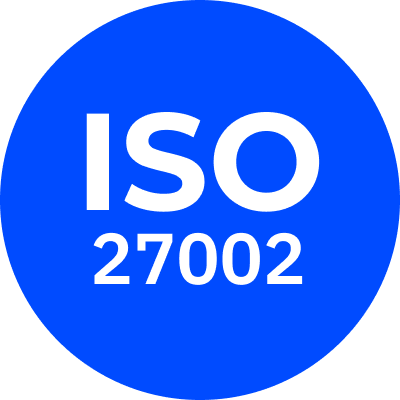
.png)











